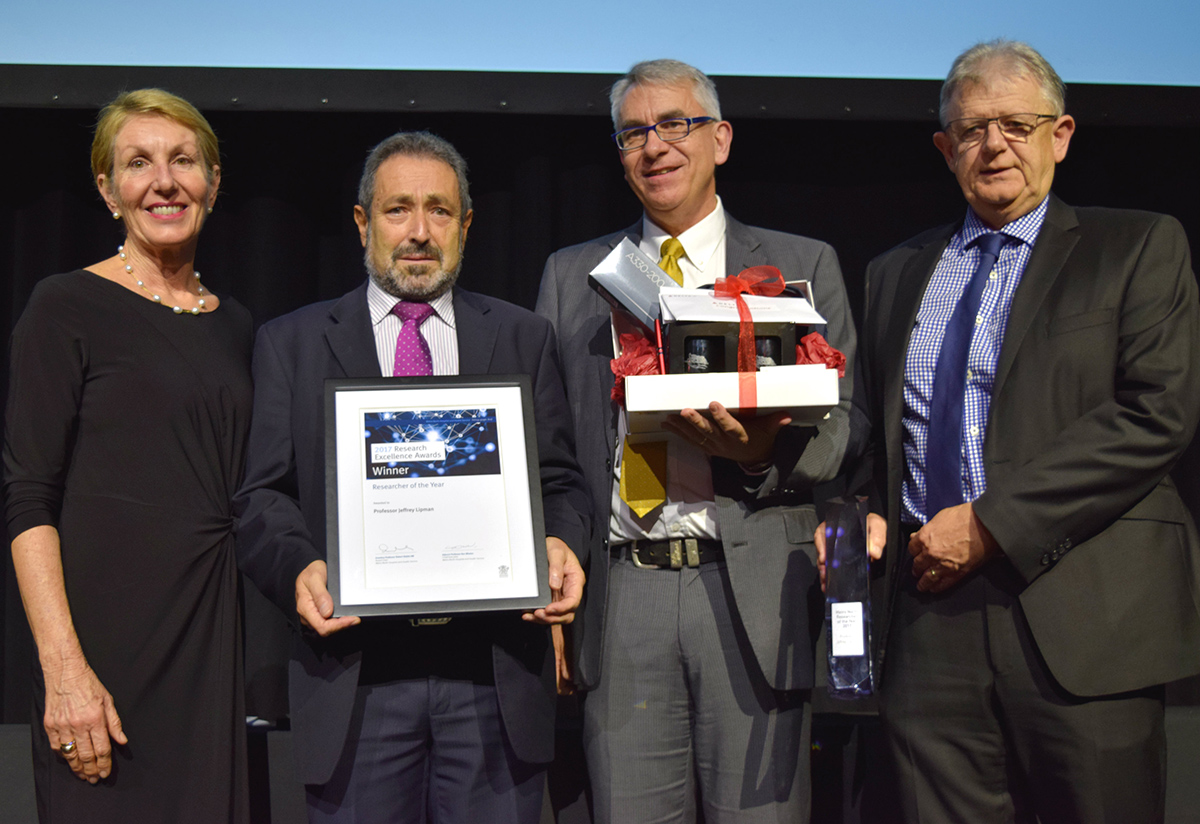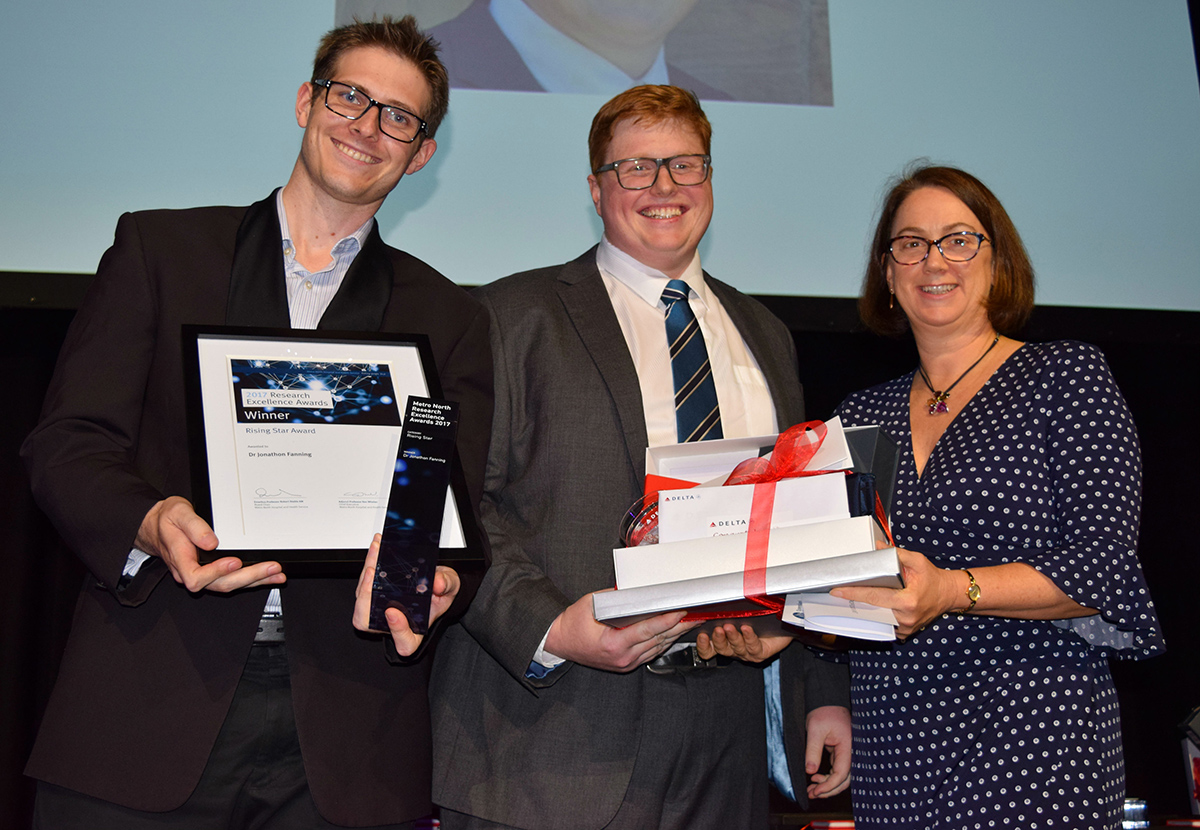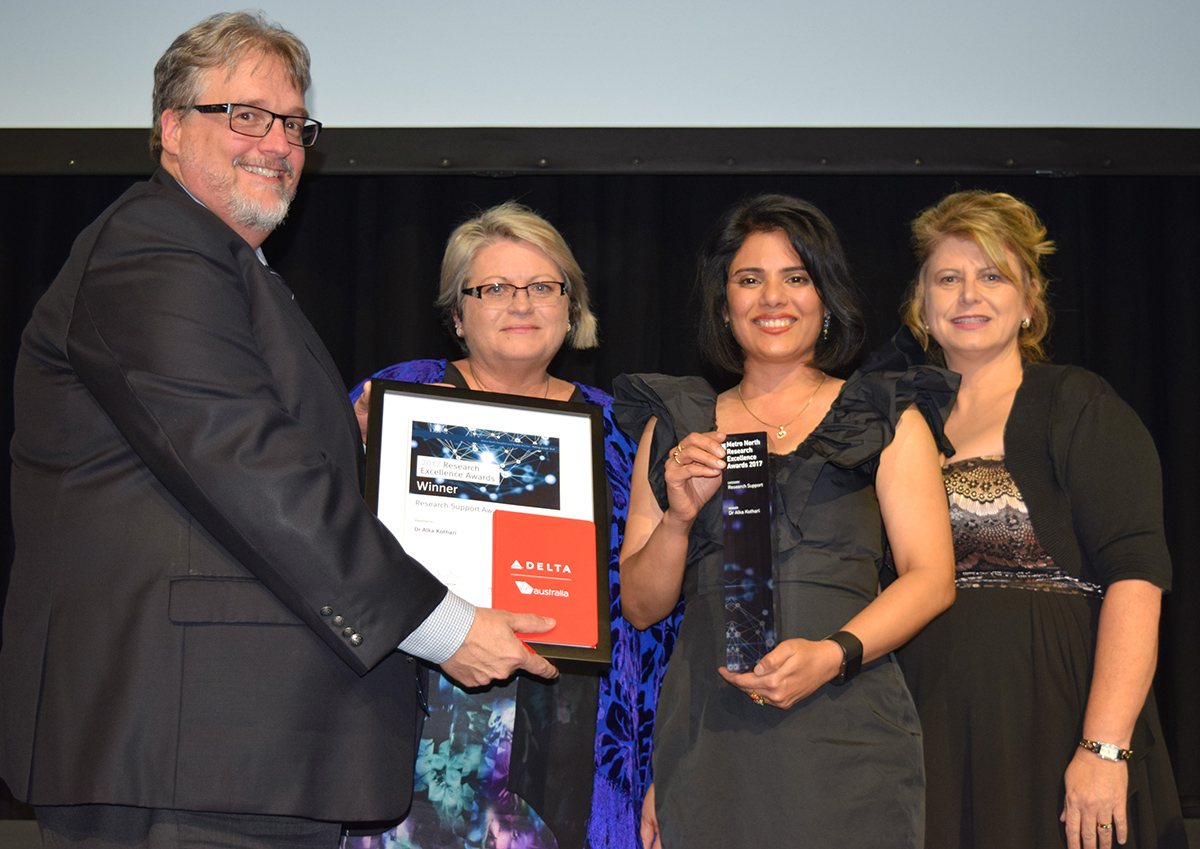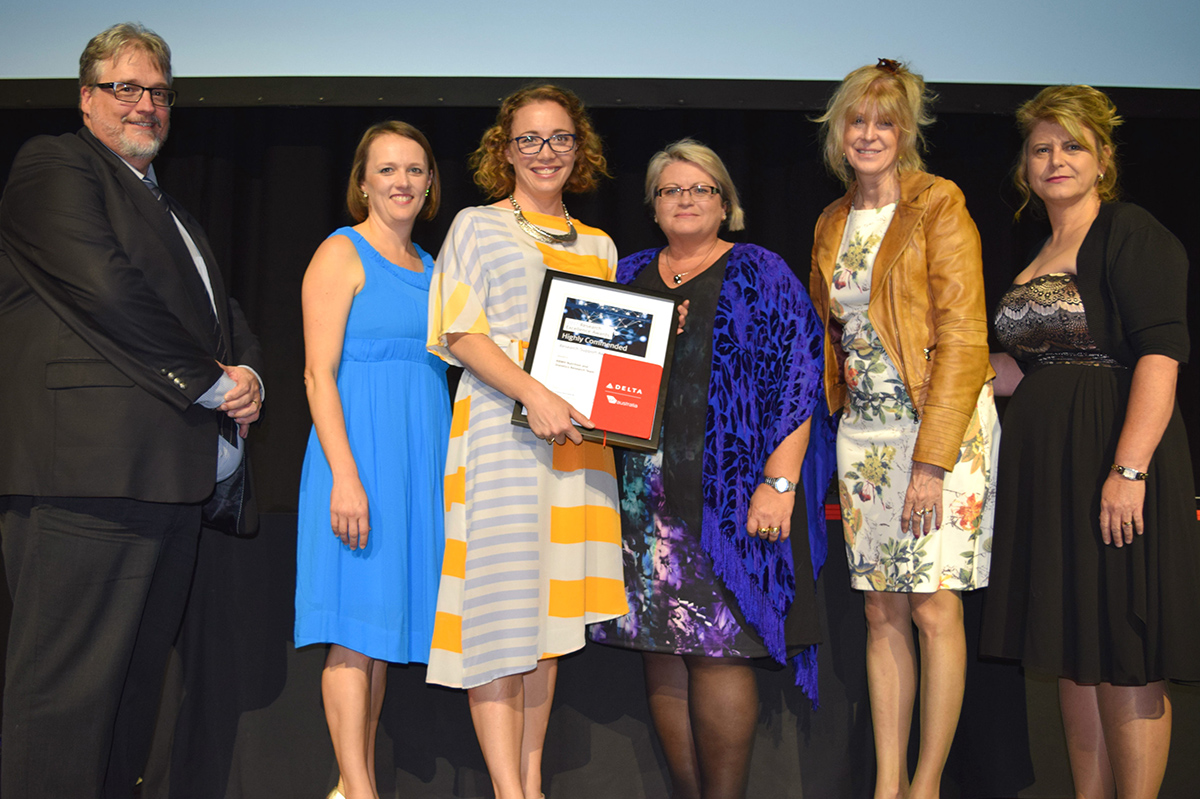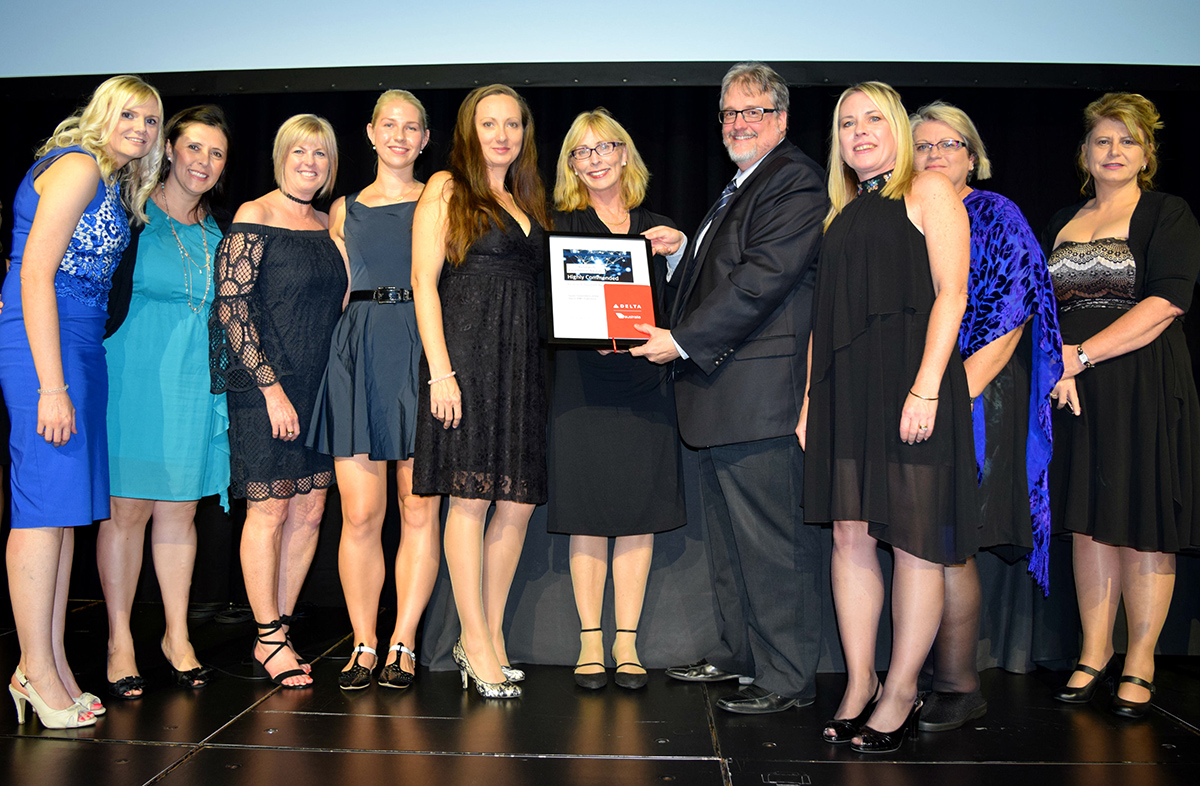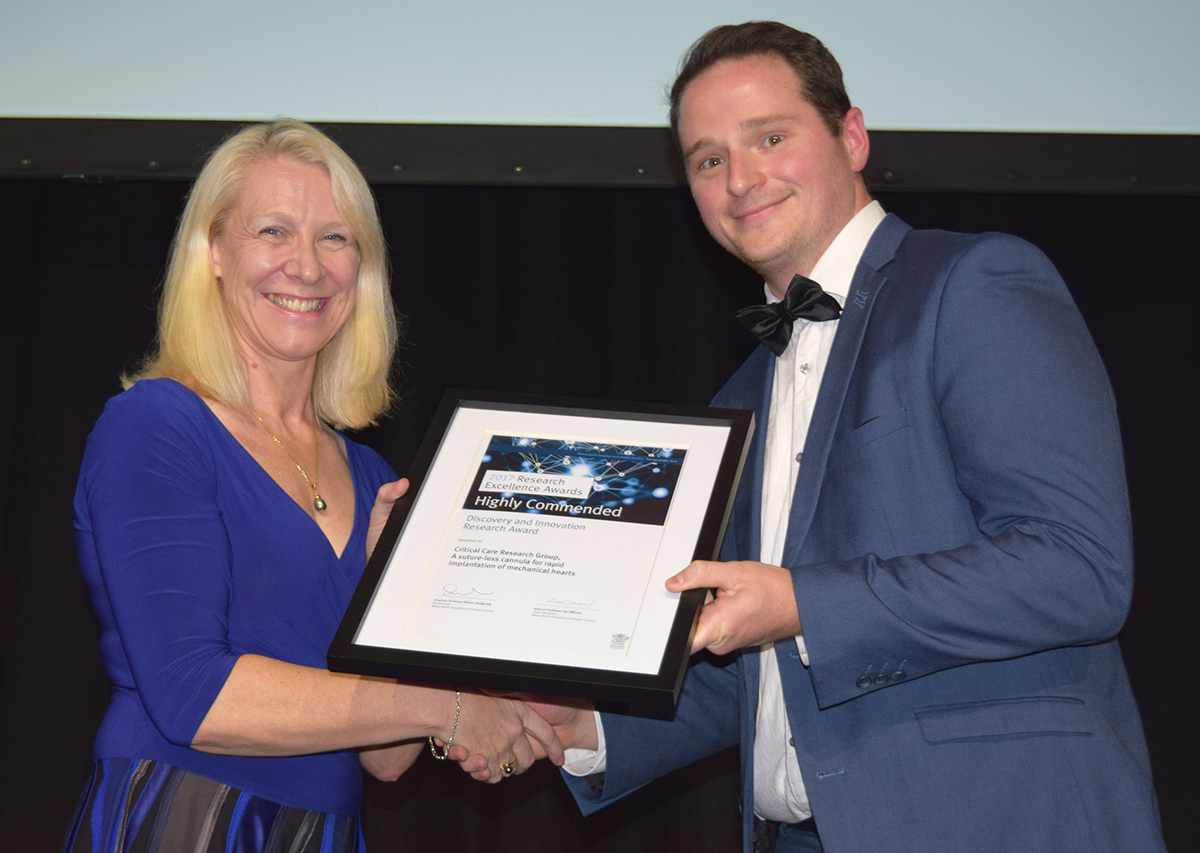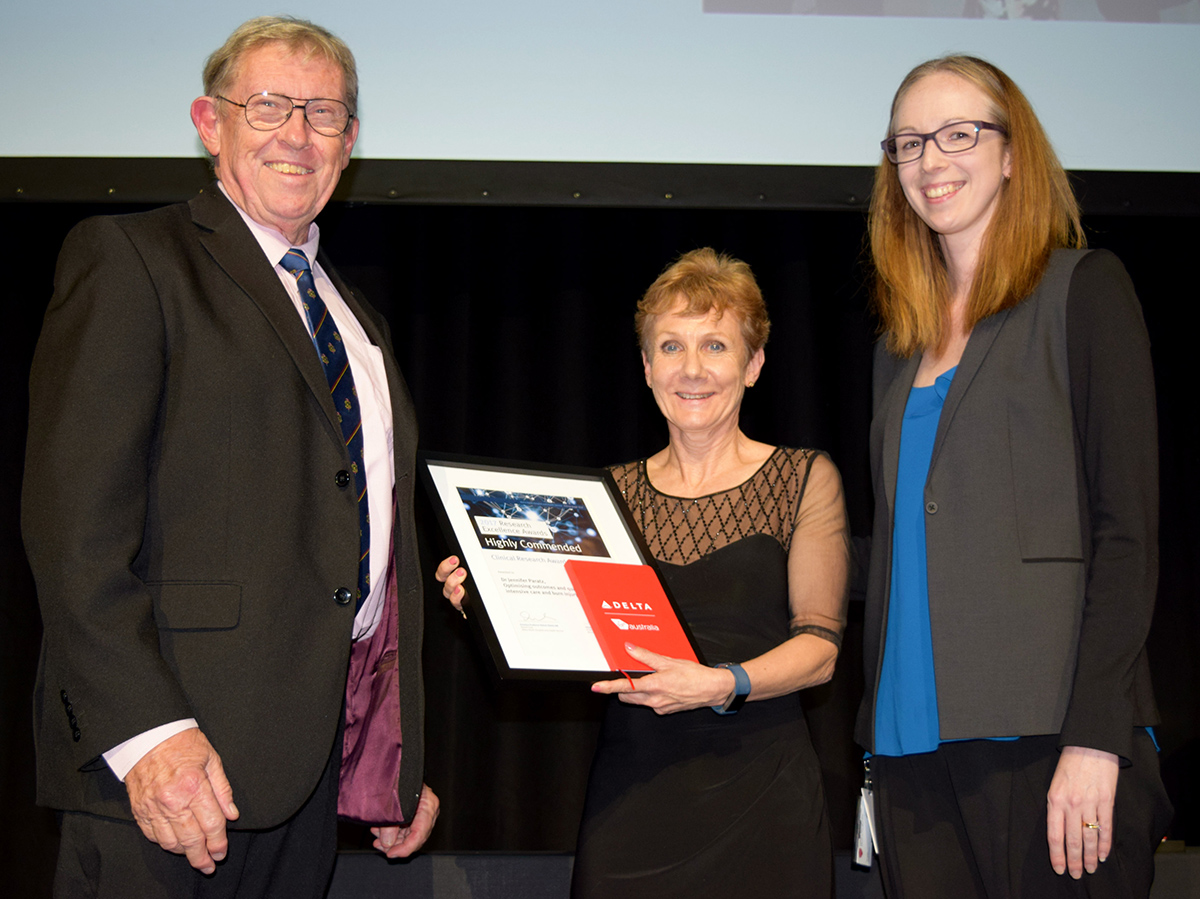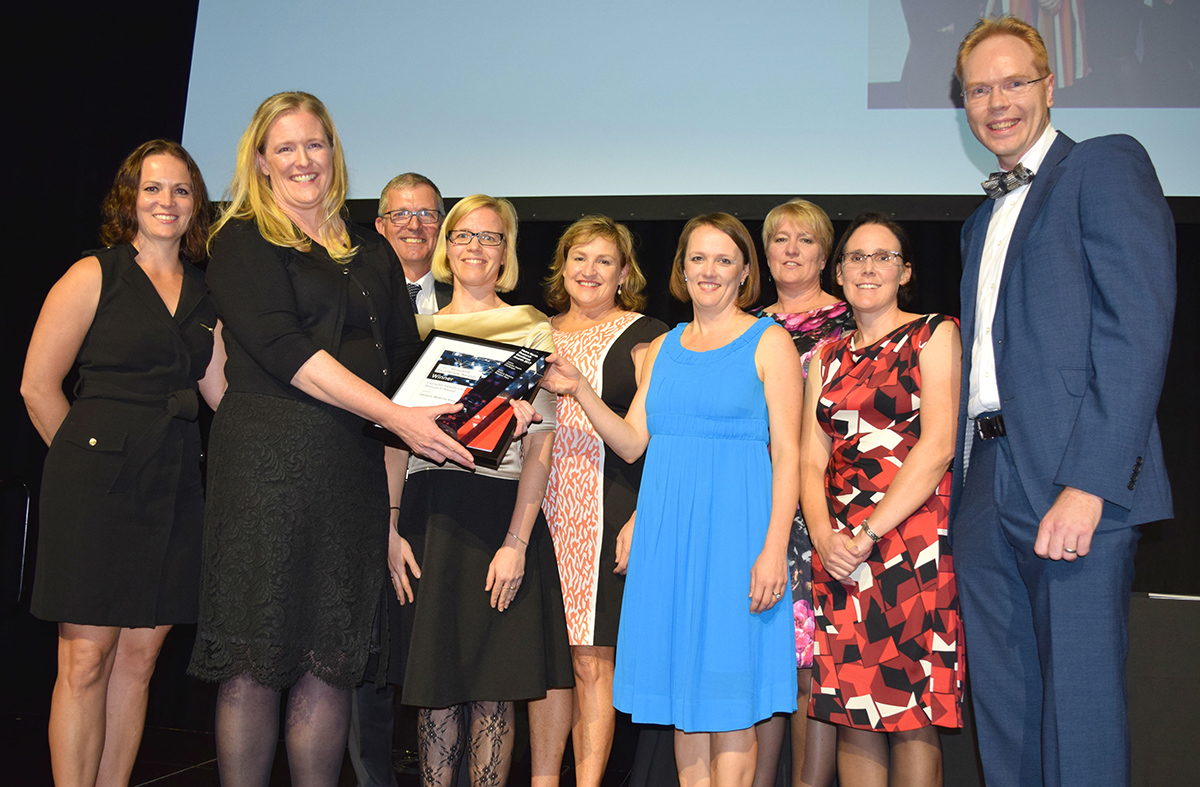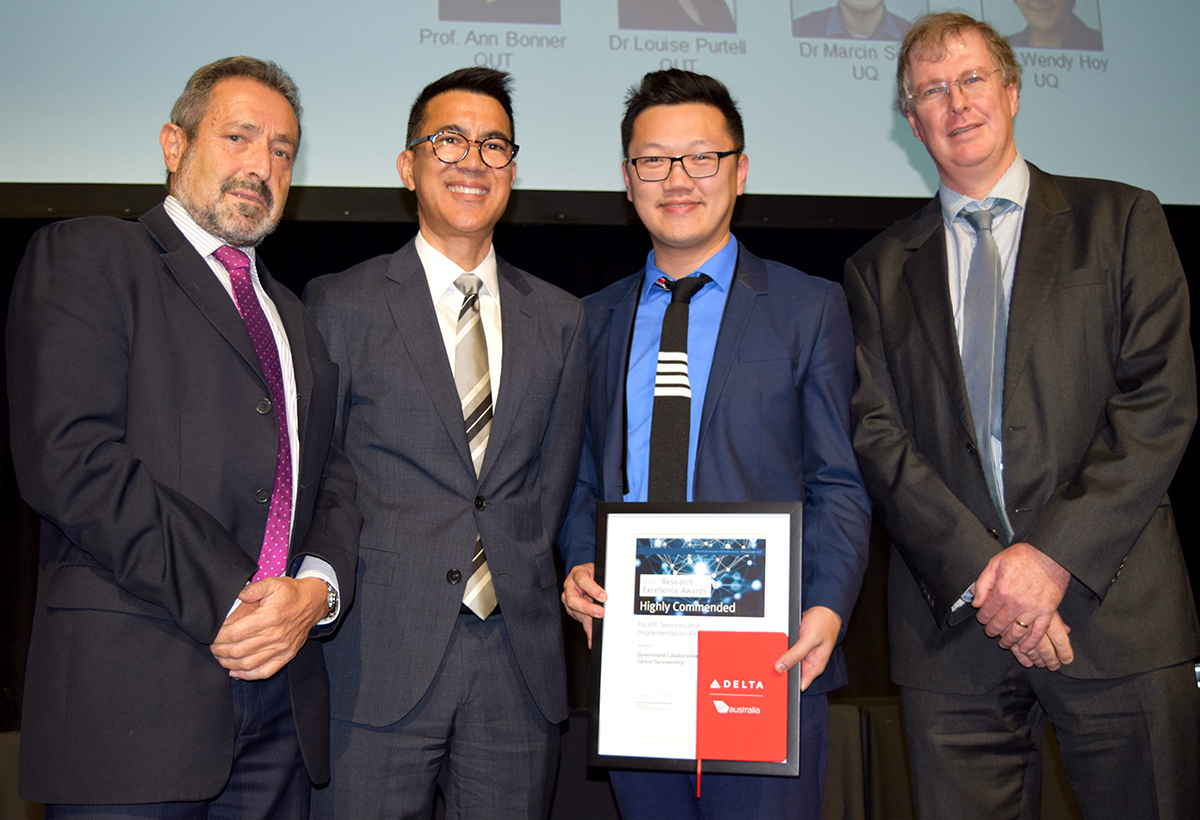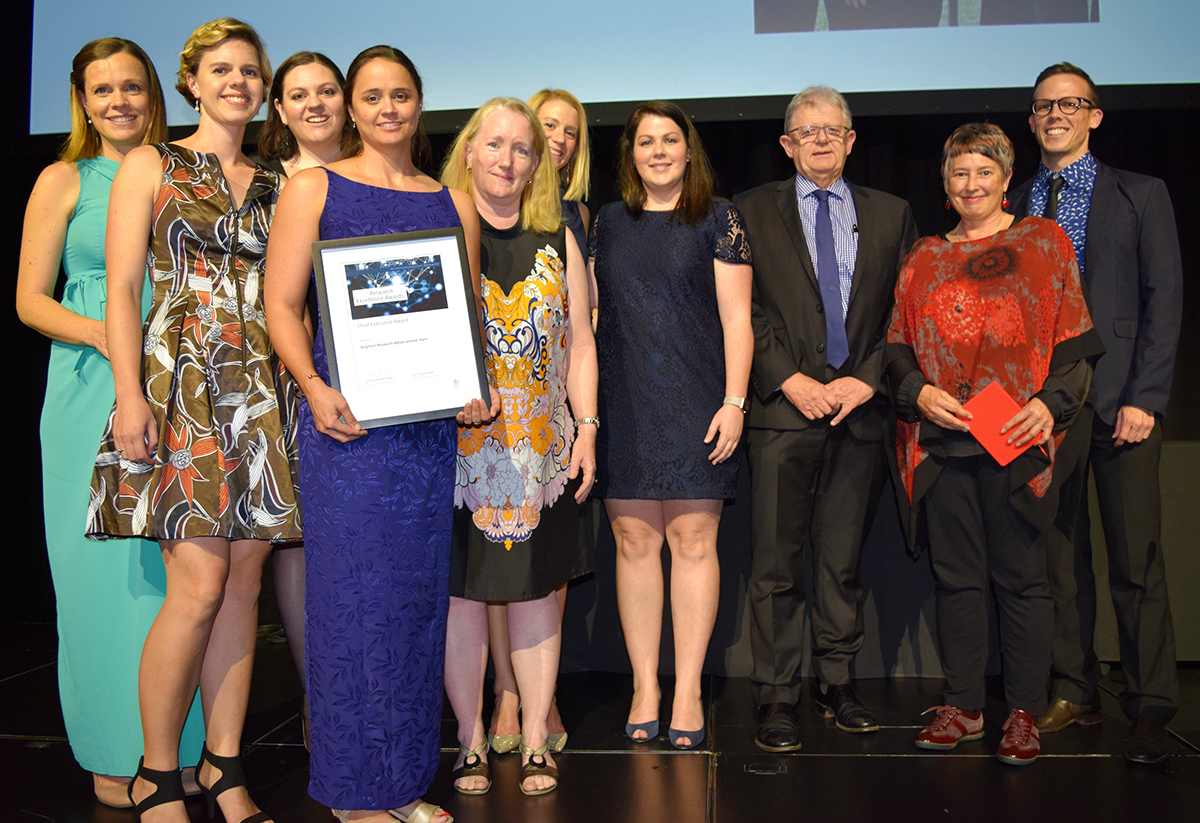Research Excellence Awards 2017
- Research
- Our research
- For patients and consumers
- Pre-approval planning
- Ethics approval
- Research governance
- Post-approval submissions
- Clinical Trials
- Supporting research
- Contact Us
2017 Research Excellence Awards Winners
The Metro North Research Excellence Awards recognise and reward outstanding achievement in research across all clinical specialties and professions.
The awards attracted 74 high calibre submissions across seven categories.
Winner: Professor Jeffrey Lipman
Professor Jeffrey Lipman is a full-time intensivist with research interest in infection management in intensive care and the pharmacokinetics of antibiotic dosage. His research has been instrumental in changing antibiotic prescribing habits worldwide for critically ill patients, first with aminoglycosides and more recently with β-lactam antibiotics. Professor Lipman has inspired countless emerging researchers and developed a word-class research team at RBWH.
Winner: Dr Jonathon Fanning
Dr Jonathon Fanning has gained international interest for his multi-centre research to identify the characteristics of neurological injury associated with transcatheter aortic valve implantation, including patient and procedural risk factors, and novel strategies for prevention. Jonathon has a reputation as a high calibre early career researcher with the potential to improve outcomes for high risk and inoperable patients. Jonathon has published high quality articles in the fields of neurology and cardiology.
Winner: Dr Alka Kothari
As Deputy Head of The University of Queensland Northside Clinical School and Staff Specialist in Obstetrics & Gynaecology, Dr Alka Kothari has brought a passion and dedication for research that has led many junior doctors, medical students and other health professionals take their first steps as clinician-researchers.
She has mentored junior clinicians in the completion and publication of 7 research projects with a further 25 research projects progressing to publication.
Highly Commended: RBWH Nutrition and Dietetics Research Team
RBWH Nutrition and Dietetics has developed a model of research support that has expanded research capacity of clinical dietitians. Central to this model is a supportive research culture and a Research Co-ordinator position, which supports clinician-researchers in formulating research questions, obtaining necessary approvals, data analysis and manuscript writing. The model of research support also includes systems-level capacity building strategies: embedded evidence-based practice and knowledge translation program, researcher support networks, university honorary positions and undergraduate research student program.
Highly Commended: Super Supporters of the Haem/BMT Trials Unit
The Haematology and Bone Marrow Transplant Clinical Research Support Team is a cohesive and productive team that support haematologists, transplant physicians and registrars in their pursuit of translational research to improve patient outcomes. In 2016, there were an average 48 Phase 2 – Phase 4 active studies, with an average of 15 open to recruitment across investigator initiated, research collaboration groups and commercially sponsored projects. This team is well regarded by their peers and national/international sponsors for their collaborative approach and willingness to support and achieve in all aspects and phases of clinical trial support.
Winner: Translational Osteoarthritis Research Group
The Translational Osteoarthritis Research Team is identifying risk factors and evaluating new ways of imaging osteoarthritis. They are working towards new treatments to repair damaged joints and have made significant progress in new technologies for early detection of cartilage degeneration. The team is internationally recognised and has published over 60 journal articles in the last five years. They are also focussed on nurturing the next generation of research leaders, having trained more than 10 PhDs and several visiting scholars. Their research significance and impact is evident in the 25 fellowships, awards, and prizes received in recent years.
Highly Commended: Critical Care Research Group, A suture-less cannula for rapid implantation of mechanical hearts
This project will resolve many of complications associated with ventricular assist devices, reducing costs to the healthcare system caused by preventable hospitalisation, increasing lifespan and quality of life for patients. The two biggest complications with VADs are postoperative bleeding and neurological events, both related to old technology used to implant devices. By developing a novel cannula design that does not require suturing to rapidly implant VADs, reducing bleeding and neurological problems, there are reduced complications and improved outcomes for patients.
Winner: Queensland Centre for Gynaecological Cancer Research, Laparoscopic Surgery for endometrial cancer
The Queensland Centre for Gynaecological Cancer cares for women diagnosed with gynaecological cancer from the Metro North catchment and is a major tertiary referral hub across Queensland, northern New South Wales and the Northern Territory. The Queensland Centre for Gynaecological Cancer research arm is committed to working with patients, funders and partners to grow research and clinical trials. Over the past 10 years the research team has worked on large and worldwide unique trials, with the aim of improving the quality of life and treatment outcomes for women with gynaecological cancer.
Highly Commended: Dr Jennifer Paratz, Optimising outcomes and quality of life in intensive care and burn injury survivors
Dr Jennifer Paratz has conducted numerous studies on intensive care and burn injury patients which have directly improved outcomes and quality of life in these patients. Examples of beneficial outcomes include an early program of exercise in critically ill septic shock patients in the intensive care who demonstrated improved quality of life six months later compared to patients who did not receive the early intervention. Patients post burn injury also achieved an improved quality of life, better return to work, better psychological adjustment as well as improved function after an exercise program.
Highly Commended: Professor Gerard Byrne, Addressing Anxiety in Older People
Professor Gerard Byrne has spearheaded the study of anxiety in older people, a major cause of disease burden. In so doing, he has contributed to a greatly increased clinical and research awareness of anxiety disorders in older people around the world. Over the past 10 years, he has collaborated with colleagues and students to conduct a series of epidemiological and experimental studies on anxiety in older people. He collaborated on the Geriatric Anxiety Inventory, a scale to measure anxiety in older people, which has been translated into 20 languages for use in clinical and research settings.
Winner: Obstetric Medicine Research Team
Over the past ten years, the Obstetric Medicine Research Team at RBWH has grown into a vibrant, internationally acclaimed group of highly productive researchers, making local, national and international contributions. They have expertise in the complex issues of obesity and diabetes in pregnancy.
The Obstetric Medicine Research Team has mentored 6 clinicians who have completed research higher degrees, including 4 with NH&MRC scholarships, and many research honours students. Team members have made wide ranging contributions to several national committees and guidelines and received more than $8 million in research funding.
Highly Commended: Adult Cystic Fibrosis Research Team
The multidisciplinary team at the Adult Cystic Fibrosis Centre has embedded research within its ethos, focusing on equipping team members to undertake clinical research focused on clinically important questions. They encourage involvement in all aspects of research whether audit/quality assurance, prospective studies or assisting recruitment for studies. All team members are encouraged to develop a research interest to support the highest standards of clinical care. Many members of the team are national and international opinion leaders and contributors to the development of discipline-specific guidelines.
Winner: Kidney Supportive Care Program
The Kidney Supportive Care program, led by Dr Helen Healy and made up of researchers and clinicians from QUT, University of Queensland and Metro North, is an innovative program based on cutting-edge research and evaluating its impact on patients and families using implementation science.
This is the first dedicated Kidney Supportive Care transdisciplinary program in Queensland, focusing on the person and their quality of life. Within 12 months of operation, the program has demonstrated better patient symptom control and coordinated health services, along with reduced healthcare costs.
Highly Commended: Queensland Collaborative for Cancer Survivorship
The Queensland Collaborative for Cancer Survivorship Translational Research is leading world-class research to improve patient outcomes after treatment, and for the remainder of their life (including palliative/end-of-life care). They focus on developing and evaluating health innovations that promote best outcomes for patients and ensure high quality, sustainable health services. The collaborative comprises research leaders of international repute from the RBWH, QUT, QIMR Berghofer, and UQ. Their work has led to multiple NHMRC/ARC successes.
Winner: Brighton Research Advancement Team
The Brighton Research Advancement Team (BRATs) are a group of clinicians who are passionate about building a culture of clinician-lead ‘grass-roots’ research. In the absence of any funded research positions in their directorate, they have provide exceptional leadership and guidance in planning and conducting research and are the most frequent point of contact for research within CISS. Several BRATs members have completed research higher degrees and produce quality publications and presentations whilst working within clinical roles. As a group, BRATs work has supported Research Showcases, university collaborations for clinically-relevant, clinician-driven research, and a voice for research within CISS.


